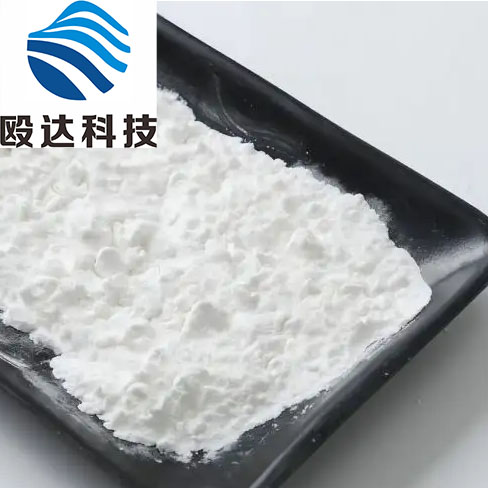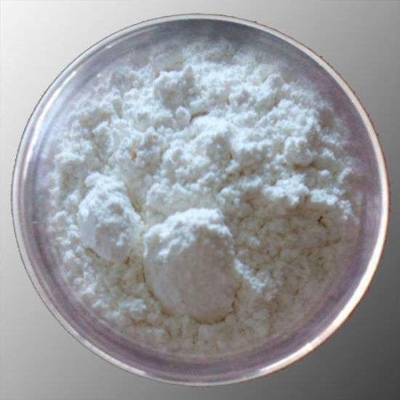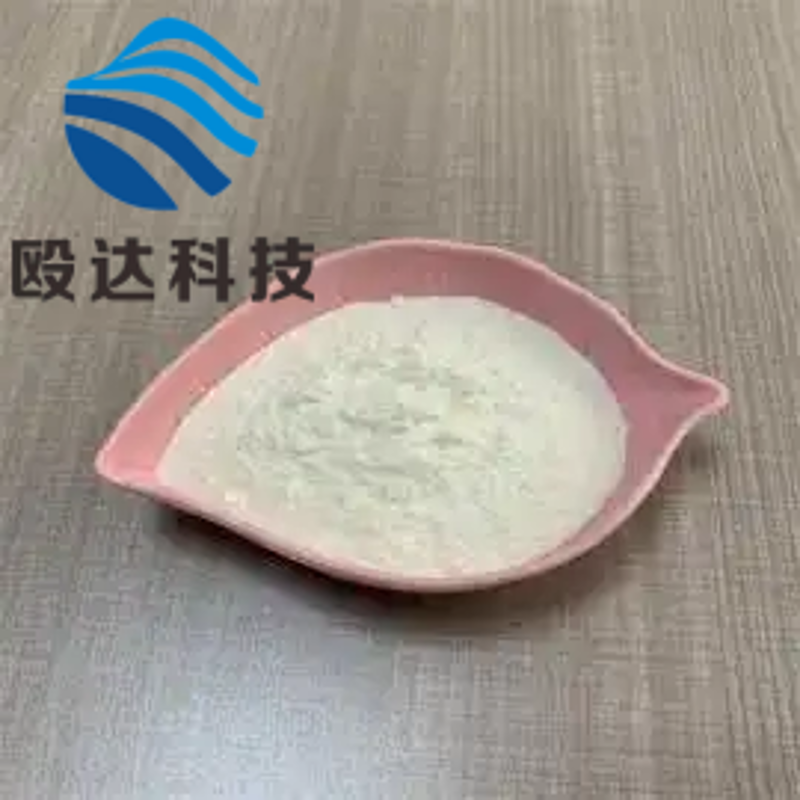-
Categories
-
Pharmaceutical Intermediates
-
Active Pharmaceutical Ingredients
-
Food Additives
- Industrial Coatings
- Agrochemicals
- Dyes and Pigments
- Surfactant
- Flavors and Fragrances
- Chemical Reagents
- Catalyst and Auxiliary
- Natural Products
- Inorganic Chemistry
-
Organic Chemistry
-
Biochemical Engineering
- Analytical Chemistry
- Cosmetic Ingredient
-
Pharmaceutical Intermediates
Promotion
ECHEMI Mall
Wholesale
Weekly Price
Exhibition
News
-
Trade Service
Sotagliflozin (Sotagliflozin) is a dual-channel inhibitor of sodium-glucose cotransporter (SGLT)-1 and 2.
Two recent large-scale clinical trials have confirmed that Sotagliflozin is effective for type 2 diabetes with chronic kidney disease (CKD).
For patients with type 2 diabetes and acute decompensated heart failure, it can effectively reduce the risk of heart failure, myocardial infarction, and stroke, while also slowing the progression of CKD
.
Study Introduction In the SOLOIST trial, 1,222 adult patients with type 2 diabetes who were hospitalized due to worsening heart failure were randomly assigned to the Soxgliflozin group (n = 608) or placebo group (n = 614).
The median follow-up time was 9 months
.
The primary endpoints are cardiovascular death and heart failure hospitalization/emergency visits (including first and subsequent events)
.
The primary endpoint events in the Soxgliflozin group and the placebo group were 245 and 355, respectively, the event incidence was 51/100 person-years and 76.
3/100 person-years, and the HR was 0.
67 (95% CI, 0.
52-0.
85; P <0.
001), NNT is 4
.
The benefits began to be statistically significant at 1 month
.
In addition, Soxaggliflozin also prolonged out-of-hospital survival.
16.
3% of patients in the Soxgliflozin group had more than one hospitalization, compared with 22.
1% in the placebo group
.
The out-of-hospital survival rate of the Soxgliflozin group was significantly higher than that of the placebo group, with an RR of 1.
03 (95% CI, 1.
00-1.
06).
The main reason for this situation was the decrease in the number of days of death (RR=0.
71, 95% CI, 0.
52-0.
99)
.
The SCORED trial enrolled 10,584 adult patients with diabetes and CKD at risk of cardiovascular disease, and they were randomly assigned to the soxgliflozin group (n = 5,292) or placebo group (n = 5,292), with a median follow-up time of 16 months
.
The primary endpoints were cardiovascular death, hospitalization for heart failure, and emergency visits
.
Compared with the placebo group, the primary endpoint risk of soxgliflozin group was reduced by 26% (HR = 0.
74; 95% CI, 0.
63-0.
88; P = 0.
0004), and the NNT was 54
.
At 3 months, significant benefits can be observed
.
In addition, the risk of cardiovascular death, non-fatal myocardial infarction, and non-fatal stroke was also lower in the Soxgliflozin group (HR=0.
77; 95% CI, 0.
65-0.
91; P=0.
002)
.
Post-mortem analysis showed that compared with the placebo group, fatal and non-fatal myocardial infarctions, fatal and non-fatal strokes were significantly reduced in the Soxaggliflozin group
.
This is the first time an SGLT2 inhibitor trial has reduced stroke as an endpoint
.
The risk of myocardial infarction and stroke was lower in the Soxgliflozin group, suggesting that SGLT1 inhibition may have anti-ischemic effects
.
The results of the meta-analysis of the two studies showed that compared with the placebo group, the soxgliflozin group had lower risks of cardiovascular death, heart failure hospitalization, and heart failure emergency visits (HR=0.
72, 95% CI, 0.
63-0.
82; P=0.
000002)
.
At the same time, Soxgliflozin also reduces the risk of cardiovascular death, heart failure hospitalization and emergency visits within the range of all ejection fractions, and the above benefits have been observed in both male and female patients
.
Professor Deepak L.
Bhatt, director of the Department of Cardiology at Harvard Medical School and Brigham and Women's Hospital, believes that SGLT inhibitors are an important intervention
.
Patients should be carefully selected during clinical application, and it is not recommended for patients with hypotension or significant blood volume insufficiency
.
SGLT inhibitors are safe and effective for patients who are in stable condition at the time of discharge
.
Soxgliflozin slows down the progression of CKD In the SCORED trial, Soxaggliflozin can reduce the risk of cardiovascular events in patients with an estimated glomerular filtration rate (eGFR) between 25-60ml/min/1.
73㎡, regardless of whether the patient has a trace amount Or large amounts of albuminuria
.
In addition, Soxaggliflozin can also reduce the percentage of glycosylated hemoglobin in patients in the moderate and severe eGFR subgroups
.
At the same time, for adult CKD patients, Soxaggliflozin can protect renal function and delay the decline of eGFR (P<0.
0001) in the first 4 weeks
.
The main renal outcome of the trial is the first continuous decrease of eGFR ≥50%, long-term dialysis, kidney transplantation or eGFR lasting <15ml/min/1.
73㎡
.
Compared with the control group, there was no significant difference in the renal outcome of the Soxgliflozin group
.
At the 16th month, the patient’s maximum loss of eGFR was 13 ml/min/1.
73 square meters.
Julia B Lewis, professor of nephrology at Vanderbilt University, pointed out that patients with eGFR ≥ 28 ml/min/1.
73 square meters had eGFR within 16 months.
The possibility of a continuous decline of 50% is small
.
In addition, due to funding issues, the trial ended early at the 16th month, so no renal benefit was observed
.
Albuminuria is a good predictor of kidney disease progression
.
The median baseline albuminuria/creatinine ratio in the SCORE trial was 74 mg/g, and it is speculated that few patients will progress rapidly
.
At the same time, Julia B Lewis pointed out that the DAPA-CKD trial shows that SGLT-2 inhibitors have renal benefits for both diabetic and non-diabetic nephropathy patients, but if the DAPA-CKD trial ends at the 16th month, no obvious kidneys will be observed.
Benefit
.
Future research direction Lawrence A.
Leiter of St.
Michael's Hospital in Toronto, Canada believes that SGLT-1 and 2 dual inhibitors may provide more benefits than using only SGLT-2 inhibitors, but this requires more clinical trials
.
Soxgliflozin has great advantages in lowering blood sugar, even in patients with severe renal impairment
.
Lawrence A.
Leiter also talk: "As an endocrinologist, we believe that management of blood glucose is very important, especially microvascular complications"
.
Professor Javed Butler of the University of Mississippi Medical Center believes that more research should be conducted in the following areas in the future, including but not limited to: whether SGLT-1 inhibition can bring more cardiovascular benefits and whether there are similar effects; SGLT-1 Will the benefits of /2 inhibitors on patients’ cardiovascular and kidneys be further confirmed in larger studies, and what will be the results if uniform standardized endpoints are used
.
These two studies answered many questions and raised many new questions
.
For patients with CKD, heart failure with preserved ejection fraction, after myocardial infarction, and acute heart failure, the efficacy of SGLT-1/2 inhibitors needs more research
.
References: 1.
Michael Monostra.
SCORED/SOLOIST: Dual inhibitor provides benefits in type 2 diabetes and heart failure, CKD.
Healio.
June 30, 2021.
Two recent large-scale clinical trials have confirmed that Sotagliflozin is effective for type 2 diabetes with chronic kidney disease (CKD).
For patients with type 2 diabetes and acute decompensated heart failure, it can effectively reduce the risk of heart failure, myocardial infarction, and stroke, while also slowing the progression of CKD
.
Study Introduction In the SOLOIST trial, 1,222 adult patients with type 2 diabetes who were hospitalized due to worsening heart failure were randomly assigned to the Soxgliflozin group (n = 608) or placebo group (n = 614).
The median follow-up time was 9 months
.
The primary endpoints are cardiovascular death and heart failure hospitalization/emergency visits (including first and subsequent events)
.
The primary endpoint events in the Soxgliflozin group and the placebo group were 245 and 355, respectively, the event incidence was 51/100 person-years and 76.
3/100 person-years, and the HR was 0.
67 (95% CI, 0.
52-0.
85; P <0.
001), NNT is 4
.
The benefits began to be statistically significant at 1 month
.
In addition, Soxaggliflozin also prolonged out-of-hospital survival.
16.
3% of patients in the Soxgliflozin group had more than one hospitalization, compared with 22.
1% in the placebo group
.
The out-of-hospital survival rate of the Soxgliflozin group was significantly higher than that of the placebo group, with an RR of 1.
03 (95% CI, 1.
00-1.
06).
The main reason for this situation was the decrease in the number of days of death (RR=0.
71, 95% CI, 0.
52-0.
99)
.
The SCORED trial enrolled 10,584 adult patients with diabetes and CKD at risk of cardiovascular disease, and they were randomly assigned to the soxgliflozin group (n = 5,292) or placebo group (n = 5,292), with a median follow-up time of 16 months
.
The primary endpoints were cardiovascular death, hospitalization for heart failure, and emergency visits
.
Compared with the placebo group, the primary endpoint risk of soxgliflozin group was reduced by 26% (HR = 0.
74; 95% CI, 0.
63-0.
88; P = 0.
0004), and the NNT was 54
.
At 3 months, significant benefits can be observed
.
In addition, the risk of cardiovascular death, non-fatal myocardial infarction, and non-fatal stroke was also lower in the Soxgliflozin group (HR=0.
77; 95% CI, 0.
65-0.
91; P=0.
002)
.
Post-mortem analysis showed that compared with the placebo group, fatal and non-fatal myocardial infarctions, fatal and non-fatal strokes were significantly reduced in the Soxaggliflozin group
.
This is the first time an SGLT2 inhibitor trial has reduced stroke as an endpoint
.
The risk of myocardial infarction and stroke was lower in the Soxgliflozin group, suggesting that SGLT1 inhibition may have anti-ischemic effects
.
The results of the meta-analysis of the two studies showed that compared with the placebo group, the soxgliflozin group had lower risks of cardiovascular death, heart failure hospitalization, and heart failure emergency visits (HR=0.
72, 95% CI, 0.
63-0.
82; P=0.
000002)
.
At the same time, Soxgliflozin also reduces the risk of cardiovascular death, heart failure hospitalization and emergency visits within the range of all ejection fractions, and the above benefits have been observed in both male and female patients
.
Professor Deepak L.
Bhatt, director of the Department of Cardiology at Harvard Medical School and Brigham and Women's Hospital, believes that SGLT inhibitors are an important intervention
.
Patients should be carefully selected during clinical application, and it is not recommended for patients with hypotension or significant blood volume insufficiency
.
SGLT inhibitors are safe and effective for patients who are in stable condition at the time of discharge
.
Soxgliflozin slows down the progression of CKD In the SCORED trial, Soxaggliflozin can reduce the risk of cardiovascular events in patients with an estimated glomerular filtration rate (eGFR) between 25-60ml/min/1.
73㎡, regardless of whether the patient has a trace amount Or large amounts of albuminuria
.
In addition, Soxaggliflozin can also reduce the percentage of glycosylated hemoglobin in patients in the moderate and severe eGFR subgroups
.
At the same time, for adult CKD patients, Soxaggliflozin can protect renal function and delay the decline of eGFR (P<0.
0001) in the first 4 weeks
.
The main renal outcome of the trial is the first continuous decrease of eGFR ≥50%, long-term dialysis, kidney transplantation or eGFR lasting <15ml/min/1.
73㎡
.
Compared with the control group, there was no significant difference in the renal outcome of the Soxgliflozin group
.
At the 16th month, the patient’s maximum loss of eGFR was 13 ml/min/1.
73 square meters.
Julia B Lewis, professor of nephrology at Vanderbilt University, pointed out that patients with eGFR ≥ 28 ml/min/1.
73 square meters had eGFR within 16 months.
The possibility of a continuous decline of 50% is small
.
In addition, due to funding issues, the trial ended early at the 16th month, so no renal benefit was observed
.
Albuminuria is a good predictor of kidney disease progression
.
The median baseline albuminuria/creatinine ratio in the SCORE trial was 74 mg/g, and it is speculated that few patients will progress rapidly
.
At the same time, Julia B Lewis pointed out that the DAPA-CKD trial shows that SGLT-2 inhibitors have renal benefits for both diabetic and non-diabetic nephropathy patients, but if the DAPA-CKD trial ends at the 16th month, no obvious kidneys will be observed.
Benefit
.
Future research direction Lawrence A.
Leiter of St.
Michael's Hospital in Toronto, Canada believes that SGLT-1 and 2 dual inhibitors may provide more benefits than using only SGLT-2 inhibitors, but this requires more clinical trials
.
Soxgliflozin has great advantages in lowering blood sugar, even in patients with severe renal impairment
.
Lawrence A.
Leiter also talk: "As an endocrinologist, we believe that management of blood glucose is very important, especially microvascular complications"
.
Professor Javed Butler of the University of Mississippi Medical Center believes that more research should be conducted in the following areas in the future, including but not limited to: whether SGLT-1 inhibition can bring more cardiovascular benefits and whether there are similar effects; SGLT-1 Will the benefits of /2 inhibitors on patients’ cardiovascular and kidneys be further confirmed in larger studies, and what will be the results if uniform standardized endpoints are used
.
These two studies answered many questions and raised many new questions
.
For patients with CKD, heart failure with preserved ejection fraction, after myocardial infarction, and acute heart failure, the efficacy of SGLT-1/2 inhibitors needs more research
.
References: 1.
Michael Monostra.
SCORED/SOLOIST: Dual inhibitor provides benefits in type 2 diabetes and heart failure, CKD.
Healio.
June 30, 2021.







